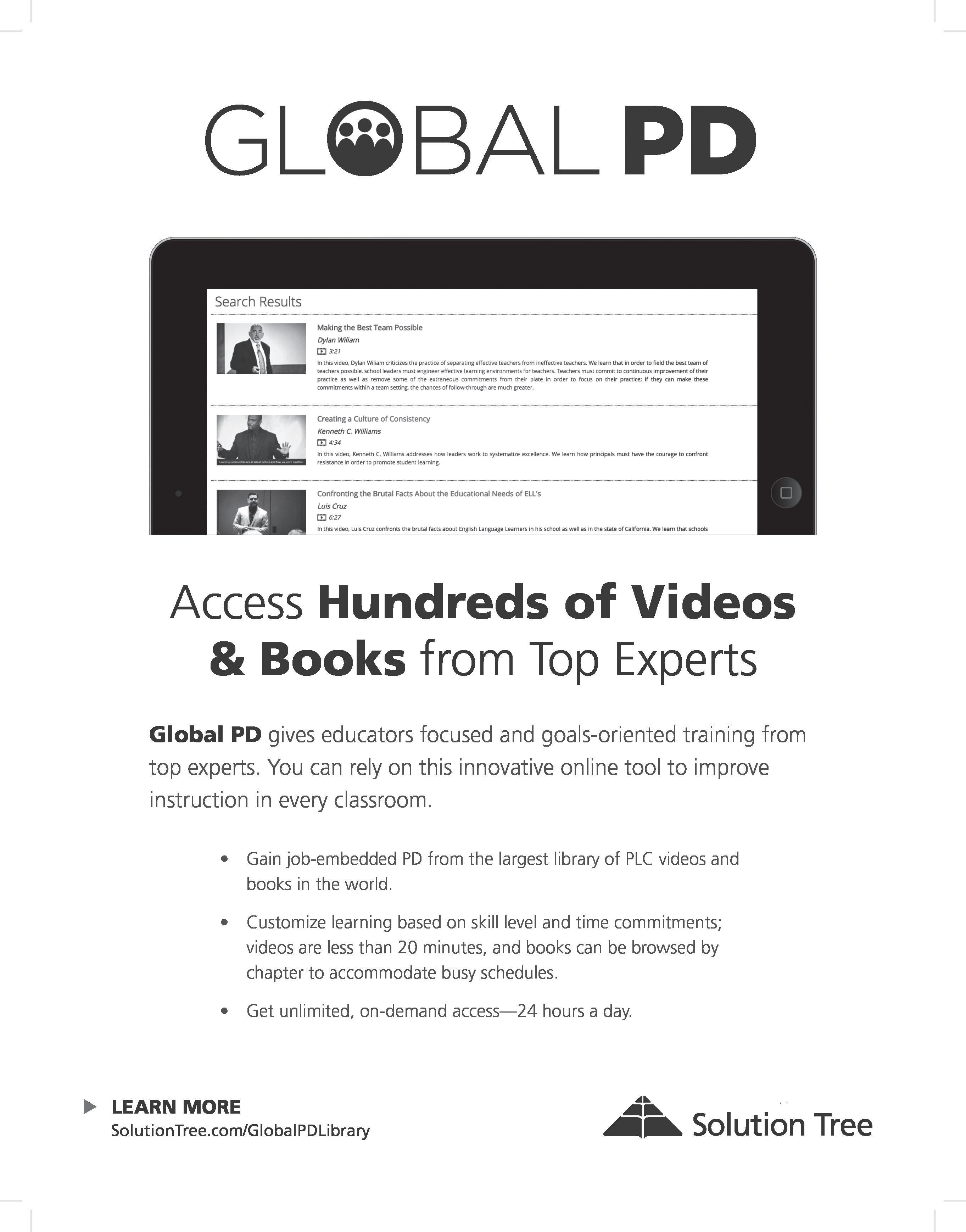How to Overcome Staff Division FACILITATOR’S GUIDE
Copyright © 2019 by Solution Tree Press
Materials appearing here are copyrighted. With one exception, all rights are reserved. Readers may reproduce only those pages marked “Reproducible.” Otherwise, no part of this book may be reproduced or transmitted in any form or by any means (electronic, photocopying, recording, or otherwise) without prior written permission of the publisher.
555 North Morton Street Bloomington, IN 47404
800.733.6786 (toll free) / 812.336.7700
FAX: 812.336.7790
email: info@SolutionTree.com
SolutionTree.com
Printed in the United States of America
Visit go.SolutionTree.com/leadership to download the free reproducibles in this book.
Solution Tree
Jeffrey C. Jones, CEO
Edmund M. Ackerman, President
Solution Tree Press
President and Publisher: Douglas M. Rife
Editorial Director: Sarah Payne-Mills
Art Director: Rian Anderson
Managing Production Editor: Kendra Slayton
Media Editor: Peggie Howard
Senior Editor: Amy Rubenstein
Proofreader: Ashante K. Thomas
Text and Cover Designer: Abigail Bowen
Editorial Assistant: Sarah Ludwig
Facilitator’s Guide Writer: Hudson Perigo
iii Table of Contents Reproducibles are in italics. Notes to the Facilitator ........................................... 1 How to Conduct the Workshop ........................................... 2 About the Video Program 3 Resources . . .......................................................... 3 Workshop Overview at a Glance ................................... 5 Workshop Teaching Suggestions ................................... 7 Learning Objectives .................................................... 7 Program Overview 7 Materials . . . .......................................................... 8 Activities . . . .......................................................... 8 Welcome and Video Introduction .......................................... 9 Exploring Schools in the Era of Accountability ................................ 9 Considering Four Distinct Perspectives ..................................... 10 Inspiring Fundamentalists to Accept Change ................................ 10 Eliminating Deficiencies in Leadership ..................................... 10 Developing Six Action Plans ............................................. 11 Conclusion . ......................................................... 12 Reproducible Handouts ......................................... 13 Six Characteristics of Believers ............................................. 14 Six Characteristics of Fundamentalists ....................................... 15
TRANSFORMING SCHOOL CULTURE iv Characteristics of Transformational Leaders . . . . . . . . . . . . . . . . . . . . . . . . . . . . . . . . . . . 16 New Teacher and Mentor Checklist ........................................ 17 Sample New Teacher Support Meeting Topics ................................. 18 Professional Learning Interest Form ........................................ 19 Checklist for Professional Learning ......................................... 20 Facilitator Checklist .................................................... 22 Presenter Checklist ..................................................... 23 Professional Learning Presentation Framework 24 References .................................................... 27
Notes to the Facilitator
Anthony Muhammad is an internationally renowned speaker, trainer, and author who stimulates conversation and inspires educators to analyze the impact of their own belief systems on students— and on the health of a school’s culture. As a former award-winning teacher and administrator, Muhammad recognizes that when students are nurtured in a diverse, just, and harmonious culture in which all educators believe in their students’ potential—all students can be successful.
After collecting and analyzing data from thirty-four demographically diverse public schools throughout the United States, he identified the cultural perspectives of four types of educators:
(1) the Believers, (2) the Tweeners, (3) the Survivors, and (4) the Fundamentalists. The result was his best-selling book, Transforming School Culture, in which he offers leadership strategies for turning toxic school cultures into healthy ones.
Appreciating the challenges that educators face on a daily basis, Muhammad (2018) says, “Cultural change is a much more difficult form of change to accomplish. . . . It requires leaders to become adept at gaining cooperation and skilled in the arts of diplomacy, salesmanship, patience, endurance, and encouragement” (p. 25).
This workshop explores strategies in Muhammad’s updated and expanded book, Transforming School Culture, Second Edition (included with the workshop). It is particularly suited for leaders and stakeholders within a single school or school district as it provides opportunities for participants to develop specific action plans for encouraging unity and cohesion within their own school cultures. Participants will discover how Garnet Valley School District, in Delaware County, Pennsylvania, used his Transforming School Culture framework to transform its district.
The workshop is divided into seven segments.
1. Welcome and Video Introduction: In the opening segment of the video, Muhammad and school administrators define how differing educator perspectives can influence both healthy and toxic school cultures.
1
2. Exploring Schools in the Era of Accountability: School leaders and classroom teachers explore the impact of governmental accountability on educator stress and expectations.
3. Considering Four Distinct Perspectives: Participants will learn how four distinct educator groups can behave and interact to create a divided school culture. These include: (1) the Believers, who operate under the assumption that their efforts make a profound difference in student success; (2) the Tweeners, educators new to a school and who are attempting to learn its prevailing culture; (3) the Survivors, those who feel overwhelmed by the daily stresses and demands of the profession; and (4) the Fundamentalists, who are intent on preserving the status quo and thus, the biggest threat to school culture improvements.
4. Inspiring Fundamentalists to Accept Change: In this segment, participants will view how Garnet Valley School District educators accepted the challenge to develop Fundamentalists, building trust and relationships while strengthening educator retention.
5. Eliminating Deficiencies in Leadership: This segment explores the basic principles of good leadership and how leaders can overcome both the logical and illogical resistance that Fundamentalists have to cultural change.
6. Developing Six Action Plans: Following research-based strategies, participants will work together to construct specific tactics for nurturing cohesion within their own school cultures.
7. Conclusion: Testimonials from administrators and educators who have established a transformational, healthy school culture.
How to Conduct the Workshop
This workshop is designed to last approximately one full day (including group activities, video, lunch, and two refreshment breaks) or two half days. This package includes all the professional development materials you will need to conduct the workshop—facilitator’s guide with detailed teaching suggestions and participant handout masters, video resources, as well as a print copy of Transforming School Culture, Second Edition.
To conduct a successful learning event, please consider the following issues.
• Preparation: It’s important that you view the entire video program, read all materials, and complete all activities yourself before leading the workshop.
• Location: The workshop should take place in an area that is large enough for individual, small-team, and whole-group work.
• Equipment: You will need a DVD player and may need multiple monitors. Ideally, you will have one video monitor for every ten to twelve participants.
• Handouts: Reproducible handouts for all participants start on page 13. Duplicate these handouts before the workshop begins and distribute them to participants according to the workshop instructions.
TRANSFORMING SCHOOL CULTURE 2
Notes to the Facilitator 3
• Additional equipment: In order to conduct the workshop, you will also need notepaper, index or note cards, flip charts, chalkboards, or whiteboards with appropriate writing materials.
• Refreshments: The agenda for the workshop should include one or more breaks at which you should offer beverages. Snacks are optional, but water should be available throughout the workshop. You will also need to allow for a one-hour lunch break.
About the Video Program
The workshop incorporates a video program that is approximately seventy-two minutes in length. The video features discussion with internationally renowned educator Anthony Muhammad, CEO of New Frontier 21, as well as documentary footage of school leaders from Garnet Valley School District, in Delaware County, Pennsylvania. These highly trained educators share their experiences and insights when implementing the strategies featured in Transforming School Culture, Second Edition.
The Professional Learning Community at Work™ (PLC) process is embedded in the culture of the Garnet Valley School District, and the footage captures the sights and sounds of effective teacher teams and leaders in action. There are no scripted scenes in this program. Participants learn from the real-life experiences of successful PLC practitioners.
Resources
Print
Transforming School Culture, Second Edition by Anthony Muhammad
Video
Transforming School Culture: Understanding and Overcoming Resistance to Necessary Change by Anthony Muhammad
Web
go.SolutionTree.com/leadership
Workshop Overview at a Glance
35–40 Exploring Schools in the Era of Accountability
10–15 Suggested Break
40–45
15–20
60
60–65
10–15
60–65
Considering Four Distinct Perspectives
Inspiring Fundamentalists to Accept Change
Eliminating Deficiencies in Leadership
Suggested Break
Developing
“Six Characteristics of Believers”
“Six Characteristics of Fundamentalists”
“Characteristics of Transformational Leaders”
“New Teacher and Mentor Checklist”
“Sample New Teacher Support Meeting Topics”
“Professional Learning Interest Form”
“Checklist for Professional Learning”
“Facilitator Checklist”
“Presenter Checklist”
“Professional Learning Presentation Framework”
5
Time (in Minutes) Video Segments Reproducible Handouts
30–35 Welcome and Video Introduction
Lunch Break
Conclusion
Six Action Plans 40–45
Workshop Teaching Suggestions
This workshop provides school leaders and stakeholders with tools essential for recognizing and positively influencing the distinct learning perspectives present within a school’s culture. Using the strategies presented in Transforming School Culture, Second Edition, participants will develop tactics for integrating educators new to the profession or new to their schools, as well as for overcoming staff division brought about by educators who are resistant to cultural change.
Learning Objectives
After viewing the video and participating in the activities for the workshop, participants will be able to:
• Consider and address the underlying tensions that can arise from educators’ own assumptions, beliefs, expectations, and habits
• Explore the challenges and stressors governmental accountability puts on school culture
• Recognize, support, and engage educators who have the intrinsic motivation to work for every student’s success
• Develop, nurture, and retain educators who are new to teaching and new to a specific school culture
• Engage and empower educators who have become disenfranchised
• Reflect on how deficiencies in leadership impact educator perspectives, and recognize how leaders can overcome logical and illogical resistance to change
• Develop and adapt six action strategies for transforming a toxic school culture into a healthy one
Program Overview
Acknowledging the distinct cultural perspectives of educators, Anthony Muhammad has created a framework of leadership strategies focused on overcoming staff division and establishing a healthy
7
school culture in which every student can succeed. In his book, Transforming School Culture, Second Edition (Muhammad, 2018), the author refers to this as moving from status quo to true reform.
The purpose of this workshop is threefold.
1. To examine the framework of modern school culture as it exists in the era of accountability
2. To explore four distinct and often conflicting educator belief systems, as well as the leadership qualities that can positively influence them
3. To provide opportunities for participants to create specific schoolwide strategies and tactics for overcoming resistance to change and fostering a healthy school culture
Materials
• Video program: Transforming School Culture
• Reproducible handouts:
• “Six Characteristics of Believers”
• “Six Characteristics of Fundamentalists”
• “Characteristics of Transformational Leaders”
• “New Teacher and Mentor Checklist”
• “Sample New Teacher Support Meeting Topics”
• “Professional Learning Interest Form”
• “Checklist for Professional Learning”
• “Facilitator Checklist”
• “Presenter Checklist”
• “Professional Learning Presentation Framework”
• Additional materials: Notepaper, index or note cards, enough flip charts, chalkboards, or whiteboards with appropriate writing instruments for six groups
Activities
You could show the video program without stopping and then conduct the activities for each section of the guide. It is recommended, however, that you follow the activities as outlined in the workshop teaching suggestions and stop the video when prompted in the facilitator’s guide and on the video. The workshop suggestions in this guide support this second approach. After showing each video segment, allow participants time to comment, express opinions, ask questions about the material, and complete the activities suggested in the guide. If requested, you can replay portions of the program as participants consider the questions and activities.
TRANSFORMING SCHOOL CULTURE 8
Workshop Teaching Suggestions 9
Welcome and Video Introduction
1. Welcome participants to the workshop and introduce yourself and anyone else serving as a workshop host, co-leader, or organizer. Briefly discuss the title and purpose of the workshop.
2. Even if participants are colleagues, conduct the following “getting to know you better” activity. Ask participants to form pairs and interview each other for a few minutes. Then, ask the pairs to introduce one another to the group, stating the person’s name, something interesting or different about the person, and what the person hopes to gain from the workshop. (If there are more than twenty people in the group, have each pair join another pair and only make introductions within each group of four.)
3. Distribute two index or note cards to each participant. On the first card, ask each to complete the sentence: “My school or district is focused . . .” Using the second card, ask participants to complete two sentences.
a. “My colleagues see me as the type of leader who . . .”
b. “I know I am the type of leader who . . .”
4. Ask participants to put away their note cards for future reference.
5. Play the first video segment, titled “Introduction.”
6. Stop the video when “Pause for Discussion” appears, and conduct the following initial activity to assess prior knowledge and participants’ perceptions regarding their own school cultures.
7. Lead a group brainstorming discussion on the following question, How can you determine if a school has a toxic or healthy culture? Ask someone from the group to record the responses on whiteboard or flip chart. Discussion starter questions could be:
a. How does toxicity begin?
b. What are the signs of a healthy school culture?
c. At our school or district, do we focus on learning, or do we focus on teaching?
Exploring Schools in the Era of Accountability
1. Restart the video, and view “Exploring Schools in the Era of Accountability.” Stop the video when “Pause for Discussion” appears.
2. Divide participants into three to four teams, and ask each group to brainstorm examples of how state and federal accountability standards affect teacher morale. Have each group appoint a leader to conduct the discussion and a recorder who will maintain a list of all contributions. Allow ten to fifteen minutes for discussion.
3. Convene the group, and ask recorders to present their findings. Encourage participants to self-evaluate how they specifically respond to the challenges expressed—and to share them in a total group discussion.
4. Take a fifteen-minute break.
Considering Four Distinct Perspectives
1. After the break, return to the video and play the segment “Considering Four Distinct Perspectives.” Stop the video when “Pause for Discussion” appears.
2. Brainstorm specific challenges now facing the school or district. These could be issues such as funding, teacher retention, school security, or parental involvement. Record responses on a whiteboard or flip chart. Have the group select the most relevant challenges members are facing.
3. Divide participants into two groups: the Believers and the Fundamentalists. Distribute the reproducible handouts “Six Characteristics of Believers” (page 14) and “Six Characteristics of Fundamentalists” (page 15) to the relevant groups.
4. Seek two to three volunteers from each group, along with an additional participant who will be the designated leader. Encourage volunteers to refer to their handouts.
5. Role-play a collaborative team meeting in which the goal is for the designated leader to achieve consensus on how to solve the challenge. Have a volunteer record and post the results on a flip chart or whiteboard.
6. Lead a discussion of group observations. Discussion questions could include: Did the leader demonstrate diplomacy? Salesmanship? Encouragement? How did participants exhibit either resistance, indifference, or cooperation? Encourage role-play participants to share their feelings.
7. Expand the discussion by asking participants how a leader might involve Tweeners and Survivors in a similar team meeting.
8. If time permits, rotate to a second challenge and a new set of volunteers for a second round of role-play.
Inspiring Fundamentalists to Accept Change
1. Return to the video and play the next segment, “Inspiring Fundamentalists to Accept Change.” Stop the video when “Pause for Discussion” appears. In this segment, participants observe Garnet Valley School District teachers and administrators discussing how to overcome Fundamentalists’ resistance.
2. Ask participants “How can you encourage Fundamentalists on your school teams to embrace cultural change?”
3. Write responses on a flip board or chalkboard and briefly discuss.
4. Break for lunch.
Eliminating Deficiencies in Leadership
1. After lunch, return to the video and play the next segment, “Eliminating Deficiencies in Leadership.” Stop the video when “Pause for Discussion” appears.
10
TRANSFORMING SCHOOL CULTURE
Workshop Teaching Suggestions 11
2. This segment of the workshop focuses on eliminating fundamentalism by addressing deficiencies in leadership and focusing on good leadership skills.
3. Distribute the reproducible handout “Characteristics of Transformational Leaders” (page 16).
4. Divide the group into four subgroups, assigning each to one of the four ways leaders can overcome resistance to change.
a. Build communication.
b. Build trust.
c. Build capacity.
d. Have accountability.
5. After selecting a leader and a recorder, each group should then brainstorm definitions, implications, challenges, and tactics for cultivating the assigned leadership quality. Subgroups should work approximately fifteen minutes.
6. Reconvene the total group. Have each recorder present subgroup results.
7. Ask participants to review the cards they filled out at the beginning of the workshop. Would they now change their answers? Invite volunteers to share any changes to their self-evaluations.
8. Now, select four to six participants and a designated leader. Repeat the role-play exercise from the previous workshop segment “Considering Four Distinct Perspectives” (steps 3 to 5)—this time assigning roles for at least one Tweener and one Survivor.
9. Lead a group discussion of observations of this exercise. Consider the following questions: Was this team dynamic different from the role-play in the morning session? If so, how?
10. Take a fifteen-minute break.
Developing Six Action Plans
1. After the break, return to the video and play the segment “Developing Six Action Plans.” Stop the video when “Pause for Discussion” appears.
2. Divide the group into six subgroups. Subgroups will select both a discussion leader and a recorder. Provide whiteboards or flip charts for each group.
3. Assign each group one of the six action plans from the video and book.
a. Developing a systematic schoolwide focus on learning
b. Celebrating the success of all stakeholders
c. Creating systems of support for Tweeners
d. Removing the walls of isolation
e. Providing intensive professional development
f. Implementing skillful leadership and focus
12
TRANSFORMING SCHOOL CULTURE
4. Each group should then work approximately thirty minutes to develop specific tactics for implementing the assigned action plan within its own school or district. Include specific considerations for each of the four educator perspectives: Believers, Tweeners, Survivors, and Fundamentalists.
5. Reconvene the total group. Have each recorder present its subgroup results.
6. After each subgroup presentation, lead a short discussion allowing participants to add encouragement and additional modifications to each plan. You will find that leading this discussion will be more effective if you have reviewed chapter 8 of Transforming School Culture, Second Edition, for Muhammad’s specific suggestions regarding each of the educator perspective profiles.
Conclusion
1. Return to the video and play the next segment, “Conclusion.”
2. Depending on the number in attendance, break the group into four or eight subgroups. Assign each subgroup one to two of the recommendations for implementing systemic change in your school. Have each group appoint a leader and a recorder who will report back: “If so, how?” “If not, why not?”
3. Reconvene the total group, and ask each reporter to present the subgroup’s findings. Lead a discussion on the results of all reports.
4. Ask participants to review the cards they filled out at the beginning of the workshop. Would they now alter their comments?
5. Distribute the remaining reproducible handouts, adapted from Garnet Valley School District’s sample training materials, and ask participants to compare them to the tools they developed during the workshop. These include: “New Teacher and Mentor Checklist” (page 17), “Sample New Teacher Support Meeting Topics” (page 18), and the Garnet Valley School District Professional Learning Kit, which contains “Professional Learning Interest Form” (page 19), “Checklist for Professional Learning” (pages 20–21), “Facilitator Checklist” (page 22), “Presenter Checklist” (page 23), and “Professional Learning Presentation Framework” (pages 24–25).
Reproducible Handouts
13
Six Characteristics of Believers
The six characteristics of Believers are:
1. High levels of intrinsic motivation
2. Personal connection to the school and community
3. High levels of flexibility with students
4. Application of positive student pressure
5. Willingness to confront opposing viewpoints
6. Varied levels of pedagogical skills
Source: Muhammad, A. (2018). Transforming school culture: How to overcome staff division (2nd ed.). Bloomington, IN: Solution Tree Press.
Transforming School Culture © 2019 Solution Tree Press • SolutionTree.com Visit go.SolutionTree.com/leadership to download this free reproducible. REPRODUCIBLES 14 |
Six Characteristics of Fundamentalists
The six characteristics of Fundamentalists are:
1. Opposition to change
2. Adherence to the Old Contract versus the New Contract
3. Belief in the normal distribution
4. Display of a wide range of skill levels
5. Participation in warring paradigms
6. Use of the three Ds (defamation, disruption, and distraction)
Source: Muhammad, A. (2018). Transforming school culture: How to overcome staff division (2nd ed.). Bloomington, IN: Solution Tree Press.
REPRODUCIBLES | 15 Transforming School Culture © 2019 Solution Tree Press • SolutionTree.com Visit go.SolutionTree.com/leadership to download this free reproducible.
Characteristics of Transformational Leaders
There are four key characteristics of transformational leaders.
1. Skillful communicators: People tend to resist change to practice and lack motivation to improve when leaders have not skillfully communicated the rationale or case for improvement. If teachers are going to embrace a vision, they have to clearly understand it and feel personally compelled to contribute to it.
2. Trust builders: The ability to connect with others’ emotions is a very essential skill of a transformational leader. People aren’t just inspired by facts and objective evidence, they also need to connect with their leaders on a personal level and know that leaders are not only intellectually connected to their purpose but also ethically connected.
3. Capacity builders: People are more willing to take a risk and try a new idea if leaders have prepared them professionally. Investment in training, resources, and time is essential if we want educators to enthusiastically embrace new ideas and practices.
4. Results oriented and courageous (accountability): Ultimately, improvement cannot be optional. A transformational leader must skillfully assess and meet his or her subordinates’ needs, but eventually he or she has to demand full participation in the change and improvement process.
Source: Muhammad, A. (2018). Transforming school culture: How to overcome staff division (2nd ed.). Bloomington, IN: Solution Tree Press.
Transforming School Culture © 2019 Solution Tree Press • SolutionTree.com Visit go.SolutionTree.com/leadership to download this free reproducible. REPRODUCIBLES 16 |
New Teacher and Mentor Checklist
Use this checklist with new teachers.
q Give a tour of the building.
q Introduce to department members and team members.
q Introduce to office staff.
q Explain procedures for getting supplies.
q Explain where teachers eat lunch (include them when your schedule permits).
q Share your classroom-management plan and classroom procedures.
q Share how and where to find the curriculum.
q Advise how to get a substitute.
q Share what the first day looks like.
q Explain how to prepare for Back-to-School Night.
q Discuss parent communication.
q Go over fire, tornado, and lockdown drills.
q Discuss where to find Individualized Education Programs if needed.
q Discuss procedure if parent asks for educational testing.
q Include them in any professional development or in-services (such as Inclusion Planning Day).
q Review the teacher handbook and building procedures.
q Schedule monthly meetings with instructional technology specialist, literacy coach, and mathematics coach.
Source: Adapted with permission from Garnet Valley School District © 2018.
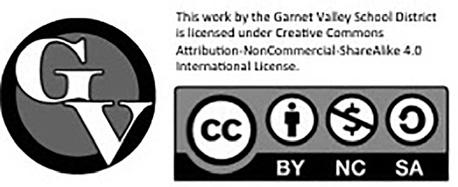
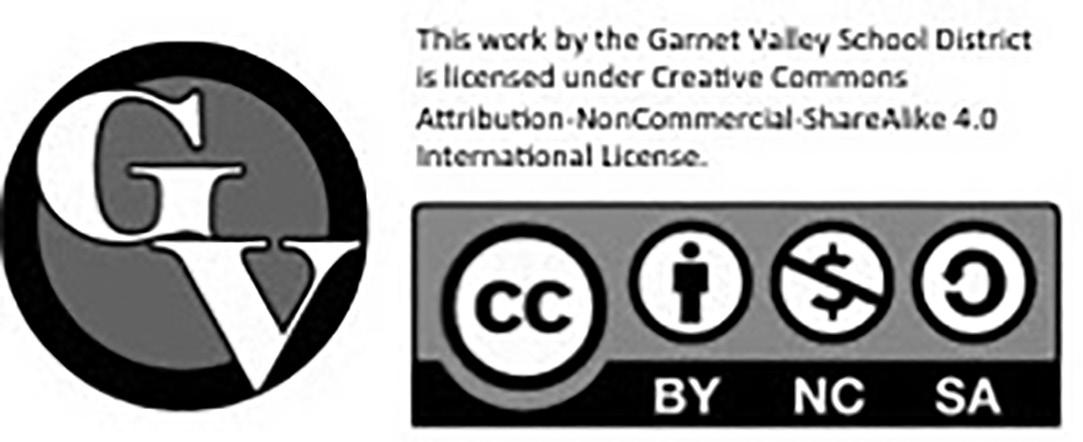
REPRODUCIBLES | 17 Transforming School Culture © 2019 Solution Tree Press • SolutionTree.com Visit go.SolutionTree.com/leadership to download this free reproducible.
Sample New Teacher Support Meeting Topics
Consider creating a chart for new teacher support similar to the following, which includes specific topics for new teacher onboarding.
Date Topic Location Presenter
9/15/17 The first two weeks Caitlin’s office Caitlin
9/29/17 Guidance resources Library Carla D’Olio and Meghan Arsenault
10/13/17
10/27/17
11/10/17
In-school support team and school psychologist Library Sheila Frederick and Jessica Meers
Working with special education Library Liza Boyd and Andrea Michaels
Parent-teacher conferences Library Team leaders
12/15/17 Mindfulness Library Pat Dunn
1/19/18 Curriculum Library Anthony Gabriele and Dave Vapniarek
2/9/18 To be determined Library To be determined
3/16/18 To be determined Library Jason Kotch
5/25/18 Close-out procedures Library Robin Bodenhamer
Source: Adapted with permission from Garnet Valley School District © 2018.


Transforming School Culture © 2019 Solution Tree Press • SolutionTree.com Visit go.SolutionTree.com/leadership to download this free reproducible. REPRODUCIBLES 18 |
Professional Learning Interest Form
Please use the following form to suggest topics that you are interested in for potential professional learning opportunities.
General Topic
Describe your topic in very general terms. Here, your description should be general enough that it might lend itself to allowing combination with other submissions (for example, strategies for working with approaching grade-level mathematics students; content-area literacy; design thinking; science, technology, engineering, arts, and mathematics [STEAM]; technology in a content area).
Specific Topic
Describe the topic in specific terms. Here, your description should be as specific as possible (for example, teaching whole-number operations using a concrete-representational-abstract approach, using signposts as a close-reading strategy, participating in the d.school: Hasso Plattner Institute of Design at Stanford, integrating science and art through STEAM activities, using Schoology in world language or Adobe Creative Suite in art).
Stage of Development
Please choose the level of development of the idea you are describing.
q Currently, it’s just an area of interest, no specifics yet.
q I have a specific topic in mind but have not completely identified resources or structure.
q I know a specific topic and resources but do not have a specific instructor in mind.
q I have a specific topic, resources, and presenter in mind.


REPRODUCIBLES | 19 Transforming School Culture © 2019 Solution Tree Press • SolutionTree.com Visit go.SolutionTree.com/leadership to download this free reproducible.
Source: Adapted with permission from Garnet Valley School District © 2018.
Checklist for Professional Learning
Presenter name and short bio:
Please return this form to by .
What you need to know:
• Date and times for presentation
• Knowledge of audience (level, experience, number of participants, and so on)
• Objectives and expected outcomes for session
• Overview of district strategic goals focused on maximizing student achievement (student achievement and a safe and caring environment)
• Overview of department and grade-level needs
• Overview of district professional learning norms (participation and engagement)—
• Maximize the time and space.
• Embrace a growth and innovator’s mindset.
• Accept disequilibrium by taking risks and embracing failure as an opportunity to grow.
• Value and recognize the collective wisdom and strength of the group.
• Actively participate by doing the following.
£ Sharing your truth respectfully
£ Listening to learn
£ Inviting others in
• Value perspective by recognizing individual differences in approaches, personalities, positions, and learning styles.
• Take ownership and communicate our work (defined autonomy).
• Overview of district professional learning norms (innovation)—
• Accept disequilibrium.
• Take risks and embrace supported failure.
• Engage in an inclusive, multiperspective process.
• Approach problems as an opportunity for growth.
• Practice self-reflection, self-regulation, and growth as a learner and professional.
Transforming School Culture © 2019 Solution Tree Press • SolutionTree.com Visit go.SolutionTree.com/leadership to download this free reproducible. REPRODUCIBLES 20 |
page
1 of 2
• Keys to our professional learning—
• Occurs within teams committed to continuous improvement, collective responsibility, and goal alignment (collaborative teams)
• Requires skillful leaders who develop capacity, advocate, and create support systems for professional learning (leadership)
• Requires prioritizing, monitoring, and coordinating resources for educators learning (resources)
• Uses a variety of sources and types of student, educator, and system data to plan, assess, and evaluate professional learning (data)
• Integrates theories, research, and models of human learning to achieve its intended outcomes (learning designs)
• Applies research on change and sustains support for implementation of professional learning for long-term change (implementation)
• Aligns its outcomes with educator performance and student curriculum standards (outcomes)
What We Need to Know
In addition to providing a detailed overview of the session, please consider the following questions.
• What physical space do you need?
• What technology do you need (projector, document camera, computer hookups, personal computer, Mac, laptop, tablet, Smartboard, or so on)?
• What are your expectations for what participants need to bring (technology or digital resources and tools versus hard copy)?
• Are there any resources we can purchase (such as a book) that would help deepen or extend our teachers’ knowledge?
Once we receive your requests, we will be in contact to discuss specifics, including who your building-level administrative contact or staff liaison will be for that day. This person will be available to help set up the session and introduce you, assist you during the session, and help close out the session.
Source: Adapted with permission from Garnet Valley School District © 2018.


REPRODUCIBLES | 21 Transforming School Culture © 2019 Solution Tree Press • SolutionTree.com Visit go.SolutionTree.com/leadership to download this free reproducible.
page 2 of 2
Facilitator Checklist
A facilitator is a person who facilitates collaborative conversations or work around a topic of interest to the grade level or department. The focus of the session may not necessarily be new learning, and little to no preparation is involved.
• In-service examples that may benefit from facilitation: Examples include working on student learning objectives, sharing of best practices, developing and sharing assessments, discussing curriculum, reading and discussing articles about current research, and collaborating through technology.
• Compensation for facilitator: Facilitator is excused from one nonmandated session that day to fulfill other professional responsibilities.
Prior to the Professional Learning Day Sessions
q Please print the attendance sheet.
q Prior to the start of the session, please make sure the room meets your needs or needs of the outside presenter or presenters.
q Make copies of each of the documents you will need.
• Facilitator checklist
• Presentation outline for district use as a facilitator (You are not required to use Google Slides to deliver the content of your sessions; however, we do ask that you review the norms, objectives, and an outline of the session with the participants.)
At the Start of the Professional Learning Day Sessions
q Have the participants sign the attendance sheet.
q Review the norms with the participants.
q Review the objectives for the session with the participants.
q Share the outline of the session with the participants.
At the End of the Professional Learning Day Sessions
q Have the participants complete the evaluations for each session.
q Send the attendance sheet to the assistant superintendent.
q If there is an outside presenter, please introduce the presenter, collect the sign-in sheet, and have the participants complete evaluations for each session.
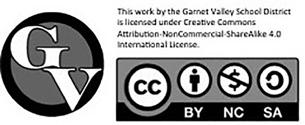

Transforming School Culture © 2019 Solution Tree Press • SolutionTree.com Visit go.SolutionTree.com/leadership to download this free reproducible. REPRODUCIBLES 22 |
Source: Adapted with permission from Garnet Valley School District © 2018.
Presenter Checklist
A presenter is a person who plans and delivers a professional learning session in which new knowledge or information around a topic of interest to the grade level or department is shared.
• In-service examples that may require a presenter: Examples include technology instruction, presentations demonstrating instructional strategies new to an audience, or presentations sharing content learned during conferences or trainings.
• Compensation for presenter: Presenter is excused from one nonmandated session that day to fulfill other professional responsibilities.
Prior to the Professional Learning Day Sessions
q Please print the attendance sheet.
q Prior to the start of the session, make sure the room meets your needs or needs of the outside presenters.
q Complete the presentation outline for district use for your session.
q Make copies of each of the documents you will need.
• Presenter checklist
• Presentation outline
At the Start of the Professional Learning Day Sessions
q Have the participants sign the attendance sheet.
q Review the norms with the participants.
q Review the objectives for the session with the participants.
q Share the slides with the participants.
At the End of the Professional Learning Day Sessions
q Have the participants complete the evaluations for each session.
q Send the attendance sheet to the assistant superintendent.
Source: Adapted with permission from Garnet Valley School District © 2018.


REPRODUCIBLES | 23 Transforming School Culture © 2019 Solution Tree Press • SolutionTree.com Visit go.SolutionTree.com/leadership to download this free reproducible.
Professional Learning Presentation Framework
Use the following framework to create a presentation.
• “Getting to know you” activity: What are you hoping to get out of this session?
• Name
• Grade
• Subject
• Position
• Norms for participation and engagement:
• Maximize the time and space.
• Embrace a growth and innovator’s mindset.
• Accept disequilibrium by taking risks and embracing failure as an opportunity to grow.
• Value and recognize the collective wisdom and strength of the group.
• Actively participate by—
£ Sharing your truth respectfully
£ Listening to learn
£ Inviting others in
• Value perspective by recognizing individual differences in approaches, personalities, positions, and learning styles.
• Take ownership and communicate our work (defined autonomy).
• Innovation norms:
• Accept disequilibrium.
• Take risks and embrace supported failure.
• Engage in an inclusive, multiperspective process.
• Approach problems as an opportunity for growth.
• Practice self-reflection, self-regulation, and growth as a learner and professional.
Transforming School Culture © 2019 Solution Tree Press • SolutionTree.com Visit go.SolutionTree.com/leadership to download this free reproducible. REPRODUCIBLES 24 |
page
1 of 2
• Objectives: By the end of this session participants will . . .
• Professional learning standards (professional learning that increases educator effectiveness and results for all students)
• How to create context, allow for celebrations, and plan for preassessments
• Before activity
• During activity
• After activity
• Wrap-up and reflection
• Next steps: What can we do next to help you? What do you need?
• Revisit of objectives: By the end of this session, participants will . . .
• Questions
• Evaluation


REPRODUCIBLES | 25 Transforming School Culture © 2019 Solution Tree Press • SolutionTree.com Visit go.SolutionTree.com/leadership to download this free reproducible.
page
2
Source: Adapted with permission from Garnet Valley School District © 2018.
2 of
References and Resources
Muhammad, A. (2010). Transforming school culture: Understanding and overcoming resistance to necessary change. Bloomington, IN: Solution Tree Press.
Muhammad, A. (2018). Transforming school culture: How to overcome staff division (2nd ed.). Bloomington, IN: Solution Tree Press.
27
NOTES
NOTES
NOTES
NOTES
NOTES
NOTES
NOTES
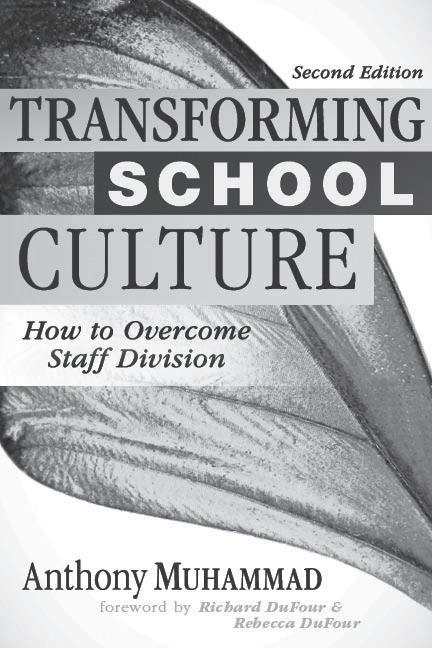
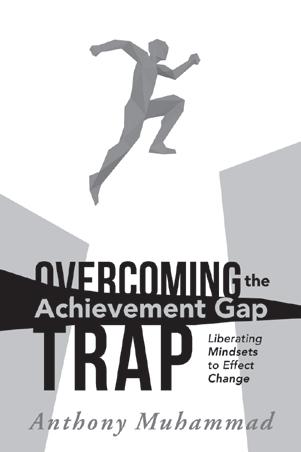
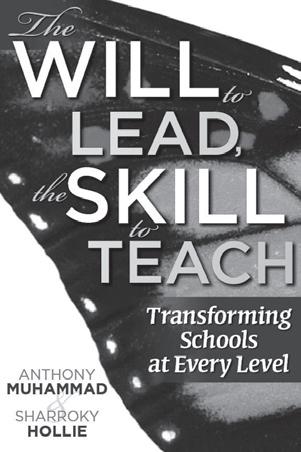
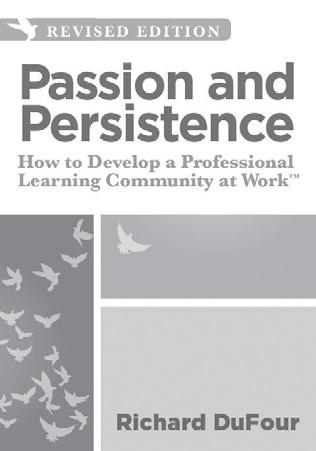
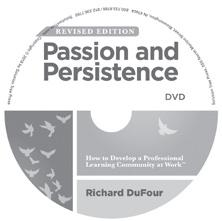
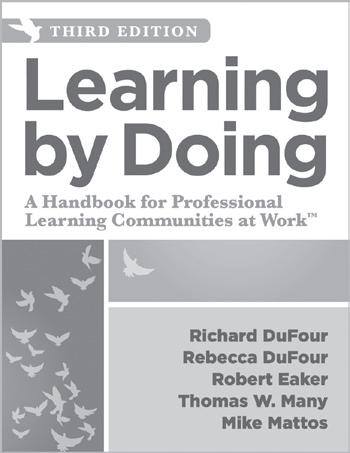
Transforming School Culture, Second Edition
Anthony Muhammad
Foreword by Richard DuFour and Rebecca DuFour
The second edition of this best-selling resource delivers powerful, new insight into the four types of educators and how to work with each to create thriving schools. The book also includes Dr. Muhammad’s latest research and a new chapter of frequently asked questions.
BKF793
Overcoming the Achievement Gap Trap
Anthony Muhammad
Ensure learning equality in every classroom. Investigate previous and current policies designed to help close the achievement gap. Examine predominant mindsets that contradict school missions to promote equal academic opportunities, and consider the psychological impact this has on students. Explore strategies for adopting a new mindset that frees educators and students from negative academic performance expectations.
BKF618
The Will to Lead, the Skill to Teach
Anthony Muhammad and Sharroky Hollie
School improvement begins with self-examination and honest dialogue about socialization, bias, discrimination, and cultural insensitivity. The authors acknowledge both the structural and sociological issues that contribute to low-performing schools and offer multiple tools and strategies to assess and improve classroom management, increase literacy, establish academic vocabulary, and contribute to a healthier school culture.
BKF443
Passion and Persistence
Richard DuFour
Use this inspiring seven-minute DVD to motivate your team to create its own PLC. In the latest version of the best-selling Passion and Persistence, Richard DuFour provides a short, impactful overview of essential PLC components. The revised video contains the memorable quotes and lighthearted humor that made the first edition so special, along with new interviews with acclaimed PLC experts Rebecca DuFour and Robert Eaker.
DVF076
Learning by Doing, Third Edition
Richard DuFour, Rebecca DuFour, Robert Eaker, Thomas W. Many, and Mike Mattos
Discover how to close the knowing-doing gap and transform your school or district into a high-performing PLC. The powerful third edition of this comprehensive action guide updates and expands on new and significant PLC topics. Explore fresh strategies, tools, and tips for hiring and retaining new staff, creating team-developed common formative assessments, implementing systematic interventions, and more.
BKF746
to
Visit SolutionTree.com or call 800.733.6786
order.
